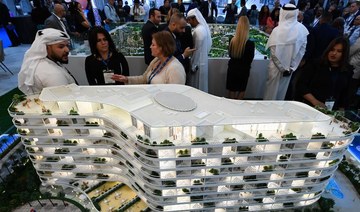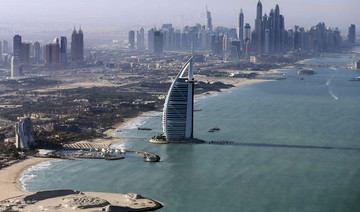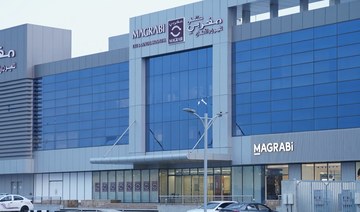LONDON: With its striking facade, Palazzo delle Poste in the heart of Milan is one of the more elegant office spaces in Europe, hosting the likes of JPMorgan and Italy’s first ever Starbucks outlet.
Having lain empty for part of 2020 as the COVID-19 pandemic sent office workers home, the early 20th-century building was sold this month to a group of private investors coordinated by Italy’s Mediobanca for 246.7 million euros ($293.3 million), 27 million euros above the original asking price.
The 2.8 percent capitalization rate - the return the property is expected to generate - was a record for office real estate in Milan.
Following a year in which remote working and social distancing have become well entrenched, leaving city-center offices, retail and hospitality venues deserted, the richness of the deal may seem counterintuitive.
But market participants say it illustrates a confidence among investors that the top end of office real estate will withstand the coronavirus shock - even as questions hang over the viability of shabbier and less well-located spaces.
“Direct investments in prestigious income properties represent an opportunity in terms of diversification and return, as demonstrated by the growing interest of our ultra-high-net-worth clients,” said Angelo Vigano, head of Mediobanca Private Banking.
Many investors are betting real estate returns will outstrip equities and bonds as the world emerges from its pandemic funk.
At a time when almost $14 trillion of global bonds pay sub-zero yields, global real estate offers annual yields based on current prices of 3-4 percent, according to JPMorgan and Refinitiv data.
That compares to 1.6 percent on U.S. government bonds and minus 0.3 percent on German debt, or dividend yields of around 1.6 percent on U.S. equities.
Property is also considered a good hedge against inflation, which is expected to rise in the coming years thanks to two-pronged stimulus campaigns by governments and central banks.
Inflation is “a slow-burning fire hanging over financial assets, but it’s a tailwind for real assets such as real estate”, said Mike Kelly, head of multi-asset at PineBridge Investments, which bought Britain-based real estate fund manager Benson Elliott last October.
“At the moment, these are very disrupted markets - which gives you a good entry spot,” he added.
After a tough start to 2020, global real estate investments in the October to December period rose 65 percent from the previous quarter to $267 billion, cushioning the year’s overall 28 percent decline, Jones Lang LaSalle said.
Data from industry specialist Global SWF shows public pension funds’ property investments hit a 2-1/2 year high in December.
The disruption linked to the pandemic means opportunities in ageing offices that can be spruced up, beat-up retail parks that can be redeveloped, and warehouses springing up to cater to the e-commerce explosion.
Blackstone, the seller of Palazzo delle Poste and owner of $368 billion in property assets worldwide, recognizes that post-pandemic working and shopping could be radically different.
“Our focus is on creating the highest quality assets, based on what tenants will want tomorrow,” said James Seppala, Blackstone’s head of European real estate.
“Particularly in response to the pandemic, employee safety and wellbeing is at the forefront of tenants’ minds.”
The challenge of finding the right investment is considerable. Many big city-center employers such as HSBC and Standard Chartered plan to cut their office footprint by up to 40 percent.
Citi analysts predict the value of office properties across Europe could plunge by 25 percent-40 percent over three years, and advises clients to ditch shares in companies providing office space.
South Africa’s Nedgroup Investments has already shed listed exposure to offices in Paris, Sydney and especially New York.
But many investors interviewed by Reuters continue to home in on prime offices. Tenants will likely take a “hybrid approach”, with home-working and offices complementing each other, said Paul Kennedy, JPMorgan Asset Management’s head of strategy and portfolio manager for real estate in Europe.
“These trends should protect ‘core’ buildings at the expense of more marginal assets,” Kennedy added.
Despite Brexit, central London office income beats most European cities; at 4 percent, it is well above Frankfurt’s 2.8 percent, says M&G Real Estate’s head of strategy Jose Pellicer.
Consultants Knight Frank predict London offices should draw investment of over 10 billion pounds this year, versus 7.8 billion in 2020.
Even more change is afoot outside the office sector, with some buildings being repurposed away from struggling industries such as retail and into more buoyant areas such as logistics and residential.
Creative repurposing has morphed more than 200 U.S. shopping malls into warehouses, hospitals and even colleges.
In Europe, e-commerce giant Amazon last year purchased a retail park and a Toys R Us outlet in London to turn them into logistics and distribution centers.
Retailer Marks & Spencer is proposing a potential redevelopment of one of its biggest stores in London, a plan that may encompass new office space.
Whether repurposed or custom-built, warehouses and apartments - “beds and sheds” in industry jargon - are clear pandemic winners. A record 39 billion euros flowed into European logistics last year, up 5 percent on 2019, Savills data shows.
Logistics giant Panattoni says it is inundated by calls from investors previously focused on offices but now lured by the prospect of long-term leases and yields of up to 5 percent.
“Many investors came to the conclusion that the traditional 15 percent allocation to logistics cannot continue” when questions hung over the future of office, retail and hospitality, said Panattoni’s European head of capital markets Artur Mokrzycki.
A quarter of British retail space, hollowed out by e-shopping, could be vacant by the end of this decade, real estate agent Savills estimates, up from 12.6 percent now.
West Orchards, a mall in the British city of Coventry, exemplifies the distress. Its leasehold, valued at $339.6 million in 2007, according to PitchBook data, was sold by auction last month for 4.9 million pounds ($6.8 million).
The seller, RDI REIT, plans to shed retail properties to focus on the industrial and offices segments.
Opportunity from crisis: how investors are playing the post-pandemic property market
https://arab.news/8wp3a
Opportunity from crisis: how investors are playing the post-pandemic property market
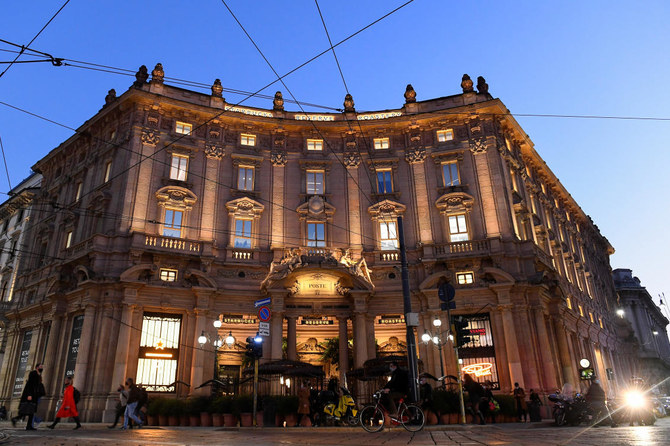
- Many investors are betting real estate returns will outstrip equities and bonds
- Public pension funds’ property investments hit a 2-1/2 year high in December
ACWA Power, IRENA join hands to accelerate global renewable energy transition
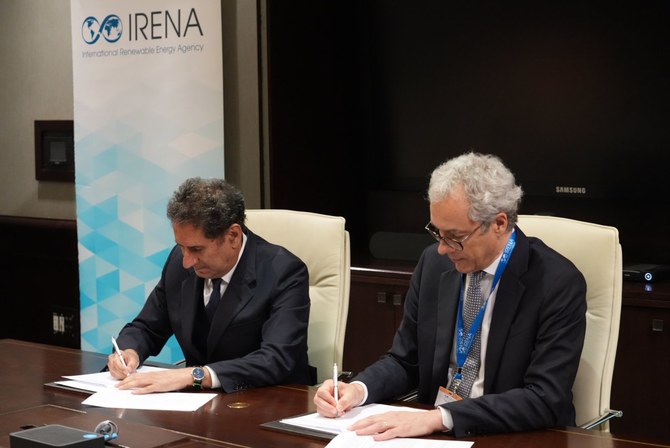
RIYADH: In a bid to add impetus to the adoption of clean energy sources worldwide, Saudi utility firm ACWA Power has signed a deal with the International Renewable Energy Agency, said a press release issued on Thursday.
The Saudi-listed firm said that the partnership aligns with its mission to provide sustainable energy solutions and seeks to accelerate the adoption and sustainable use of renewable energy across the globe.
ACWA Power will work closely with IRENA to share crucial insights on infrastructure investment in renewable energy, green hydrogen advancement, solar energy, smart grids, and the intersection of energy and water, the press release said.
The Saudi-listed company also announced its participation in various IRENA initiatives, such as Green Hydrogen, Collaborative Frameworks, Project Facilitation, the Alliance for Industry Decarbonization, the Utilities for Net-Zero Alliance, and the Coalition for Action.
As per the deal, ACWA Power and IRENA will investigate avenues to mobilize finance and investment for renewable energy projects, while also supporting infrastructure for the development, storage, distribution, transmission, and consumption of renewables.
Moreover, collaborative workshops and seminars will be arranged to exchange best practices, enhance skills, and promote awareness of the energy transition among youth, professionals, and the public using IRENA’s platforms and programs.
ACWA Power CEO Marco Arcelli said the partnership with IRENA marks a significant milestone in his company’s journey toward a sustainable energy future.
“By combining our strengths and resources, we are prepared to drive meaningful change and accelerate the transition to renewable energy on a global scale,” he said.
The CEO added that through collaborative partnerships and innovative solutions, ACWA Power remains committed to advancing the widespread adoption and sustainable use of renewable energy, shaping a brighter and more sustainable future for generations to come.
IRENA Director General Francesco La Camera commented: “We have less than a decade left to secure a fighting chance for a 1.5°C world. Accelerating the renewable-based energy transition needs industry leaders and this deal between IRENA and ACWA Power stands for the growing commitment of global industry to act on decarbonization.”
He added: “We need to act together to accelerate the sustainable use of renewables and green hydrogen across the globe.”
Closing Bell: TASI ends the week in green with trading turnover at $2.18bn
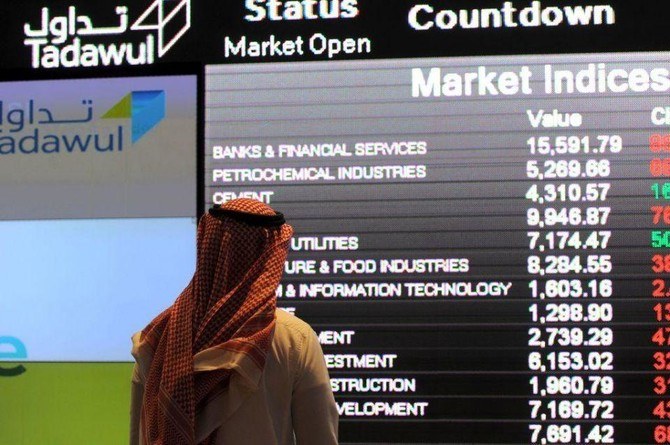
RIYADH: Saudi Arabia’s Tadawul All Share Index rose on Thursday, gaining 36.37 points, or 0.29 percent, to close at 12,502.35.
The total trading turnover of the benchmark index was SR8.19 billion ($2.18 billion) as 130 stocks advanced, while 90 retreated.
The MSCI Tadawul Index also increased by 5.98 points, or 0.38 percent, to close at 1,575.11.
The Kingdom’s parallel market, Nomu, followed suit and gained 305.77 points, or 1.16 percent, to close at 26,418.75. This comes as 33 stocks advanced, while as many as 27 retreated.
The best-performing stock on the main index was Saudi Arabian Amiantit Co., as its share price rose by 7.69 percent to SR30.80.
Allianz Saudi Fransi Cooperative Insurance Co. also performed well as its share price saw a 6.79 percent increase to close at SR20.16.
This comes as Abu Dhabi National Insurance Co. completed a strategic acquisition of a 51 percent stake in Allianz, according to the Emirates News Agency, WAM.
ADNIC Chairman Mohamed Al- Nahyan told WAM: “The connection between the UAE and Saudi Arabia is deep, mutually beneficial and ever-growing. At ADNIC, we see Saudi Arabia as a high-potential market which perfectly aligns with our overall growth strategy, and we are looking forward to unlocking new possibilities for growth and success.”
Other top performers include United Cooperative Assurance Co. and Saudi Pharmaceutical Industries and Medical Appliances Corp. whose share prices soared by 5.68 percent and 5.51 percent, to stand at SR11.16 and SR14.16 respectively.
The worst performer was Alkhaleej Training and Education Co., whose share price dropped by 5.27 percent to SR33.25.
On the announcements front, Saudi mining giant and Public Investment Fund subsidiary, Saudi Arabian Mining Co., known as Ma’aden, announced the launch of single stock options in a statement on Tadawul.
SSOs will enable local and international investors to effectively hedge and manage portfolio risks as well as diversify products available for trading in the market.
Saudi minister calls for ‘decisive financial policies’ to counter global economic uncertainties
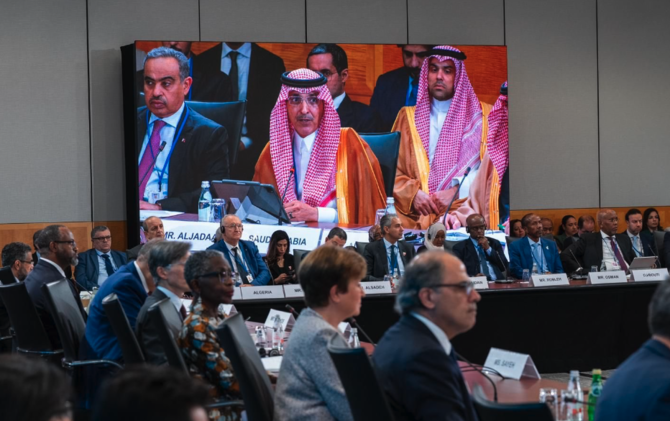
RIYADH: Saudi Arabia’s finance minister on Thursday stressed the need for “decisive financial policies” across the world to navigate through uncertain economic conditions.
Speaking during the Spring Meetings 2024 of the IMF held in Washington, D.C, Mohammed Al-Jadaan noted that such a decisive approach would bolster resilience and sustainability amid the ongoing uncertainties.
He was attending a meeting of finance ministers and governors of the Middle East, North Africa, Afghanistan and Pakistan region with IMF Managing Director Kristalina Georgieva.
“I also participated in the Global Sovereign Debt Roundtable, where I highlighted the importance of enhancing Comparability of Treatment by establishing a clear and fair framework that ensures equitable treatment among all creditors,” Al-Jadaan said in a post on X.
Additionally, the minister participated in the second G20 finance ministers and central bank governors’ meeting held under the Brazilian presidency in Sao Paulo. He emphasized that effective climate action required a holistic approach.
He said that can be achieved “by integrating diverse sectors acknowledging the diversity of solutions to address climate challenges, including using innovative technologies to manage emissions.”
Al-Jadaan also met with Jose Vinals, chairman of Standard Chartered Bank, to discuss the regional and global economic outlook.
He also met with Spanish Minister of Economy, Trade, and Business, Carlos Cuerpo to discuss ways to enhance relations between the two countries.
Moreover, Al-Jadaan held talks with Jean Lemierre, chairman of Bank BNP Paribas, the global head of Official Institutions Coverage, Laurent Leveque, and the head of Debt Capital Markets, Alexis Taffin.
They discussed progress made in Saudi Arabia, as well as issues related to attracting investment and alternative financing.
Magrabi opens new complex in Makkah
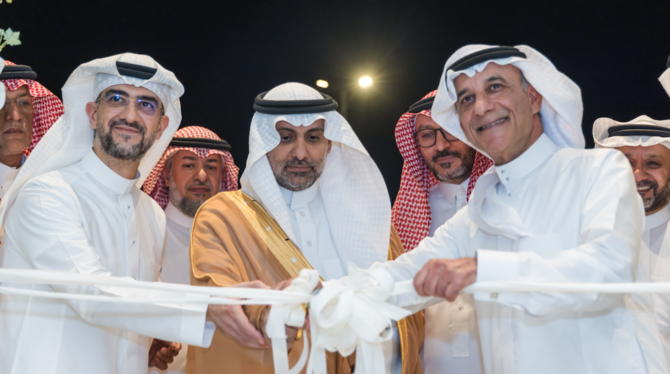
RIYADH: With a new branch in Makkah, Magrabi Hospitals and Centers are expanding to more Saudi cities to meet the growing demand for specialized ophthalmological and dentistry care.
Minister of Health Fahad Al-Jalajel inaugurated the medical complex and one-day surgery center in the holy city, accompanied by Magrabi Hospitals and Centers CEO Mutasim Alireza, the Group’s Deputy CEO and Cheif Operating Officer Abdulrahman Barzangi, and several officials and dignitaries.
Al-Jalajel underscored that the opening reflects the Kingdom’s commitment to enhancing the quality of its healthcare services and transitioning toward a more comprehensive and integrated medical system.
He further stated that this initiative is a vital component of the Health Transformation Program, a foundational aspect of Saudi Vision 2030, which has achieved significant milestones and advancements in the medical sector under the leadership of Crown Prince Mohammed bin Salman.
Following the official inauguration, the minister toured the complex’s facilities, noting its significance as a notable project and a valuable contribution to the Kingdom.
Alireza said: “This specialized medical complex underscores our commitment to being at the forefront of healthcare for ophthalmology and dental services and continuing our mission to offer specialized medical services that meet community needs with the utmost quality and safety.”
In March, Magrabi Ophthalmology and Dentistry Hospital Dammam officially opened its doors in Al-Shaala, marking an achievement for medical care in Saudi Arabia.
The Magrabi Dammam health facility is the largest specialized center in the region and provides sub-specialized services, meeting the highest quality standards and leveraging the latest global technologies.
UAE records 64% surge in trademark registrations
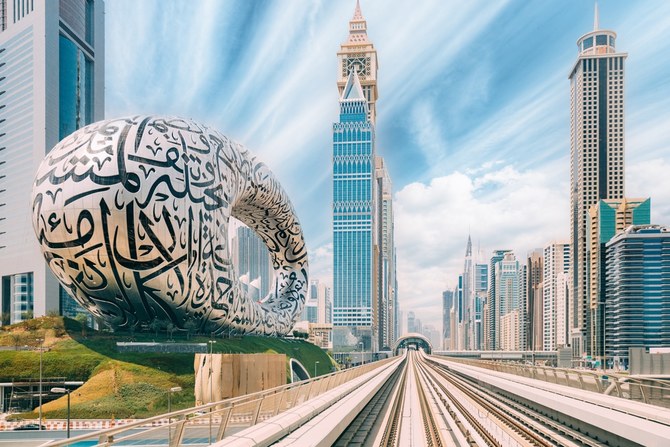
RIYADH: The UAE recorded an annual 64 percent surge in trademark registrations, amounting to 4,610 in the first quarter of 2024, official data showed.
The figures, released by the nation’s Ministry of Economy, reveal the notable increase from 2,813 signups in the same period of 2023.
March emerged as a particularly prolific period, with 2,018 new brands reported.
The trademarks registered during this time span a wide range of key sectors, including smart technology, transportation, food and beverage and pharmaceuticals as well as medical devices, finance, real estate, and more.
The preceding months of January and February collectively accounted for 2,592 trademarks, further highlighting sustained growth and momentum in registrations.
As the country continues to position itself as a global business hub, trademark registrations serve as a crucial indicator of economic vitality and innovation-driven growth.
In a release on X, the ministry noted on April 17 that it has: “Worked on developing the trademark registration service, using the latest technologies and innovative solutions to achieve higher efficiency and better interaction with clients.”
The UAE’s adherence to international treaties and agreements further strengthens its trademark registration regime.
By adhering to agreements like the Paris Convention for the Protection of Industrial Property and the Agreement on Trade-Related Aspects of Intellectual Property Rights or TRIPS, the UAE facilitates international trademark registration and enforcement, empowering businesses to broaden their operations across borders.
The nation has further established mechanisms for enforcing trademark rights and combating infringement.
These include civil remedies, such as damages, injunctions, and seizure of infringing goods, as well as criminal penalties for trademark counterfeiting and piracy.



